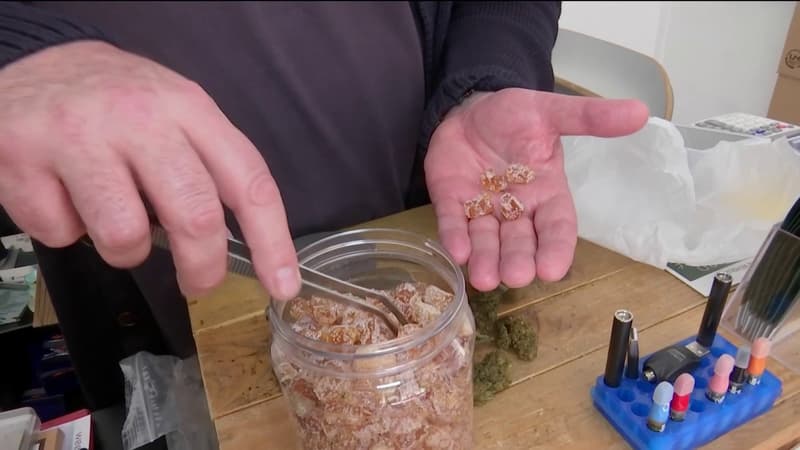Products based on hexahydrocannabinol (HHC), a molecule derived from cannabis but currently on free sale in France, will be banned in France from Tuesday, the National Agency for the Safety of Medicines and Health Products (ANSM) announced on Monday. .
This decision follows work that has shown that HHC “presents a risk of abuse and dependence equivalent to that of cannabis,” the ANSM specified in a press release.
Appearing on the drug market in the United States in late 2021, HHC was first spotted in Europe in May 2022, during a seizure by customs officials, the observatory tracks. Eight months later, it had been identified in more than 70% of EU member countries.
Already banned in some European countries
Some European countries (Austria, Belgium, Denmark and the United Kingdom) have recently banned it. Since the first identification of HHC in Europe, two other synthetic cannabis have been detected on the continent: HHC acetate (HHCO) and hexahydrocannabiphorol (HHCP).
“We have decided to include hexahydrocannabinol (HHC) and two of its derivatives, HHC acetate (HHCO) and hexahydroxycannabiphorol (HHCP) on the list of narcotic drugs. Therefore, their production, sale and use in particular are prohibited in France as of June 13, 2023”, stated the ANSM.
The Minister of Health, François Braun, had announced his next ban less than a month ago. “From tomorrow, the consumption and sale of HHC will be prohibited. My ministry is mobilized to protect the health of the French and fight against addictions,” he tweeted.
The ANSM based its decision on the work of the evaluation and information centers on drug dependence-addict surveillance.
Effects similar to cannabis
This work has shown that “the chemical structure of these products is close to that of delta-9 tetrahydrocannabinol (delta-9 THC), classified as a narcotic,” according to the ANSM.
The molecule has been known to scientists for a long time but, for a few months now, the health authorities of different countries -Europe and the United States- have noticed that it is increasingly being sold on the Internet or in physical stores.
Its effects are poorly understood, but addicts tend to view them as comparable to those of tetrahydrocannabinol (THC), the substance at the heart of cannabis’ psychoactive effects.
Source: BFM TV


